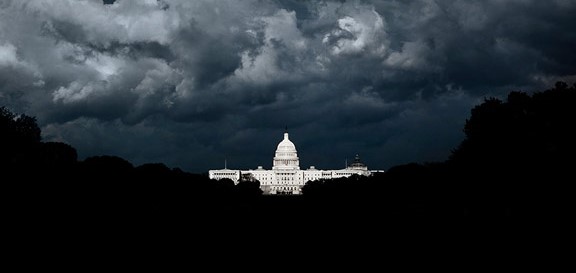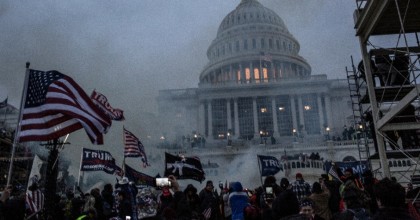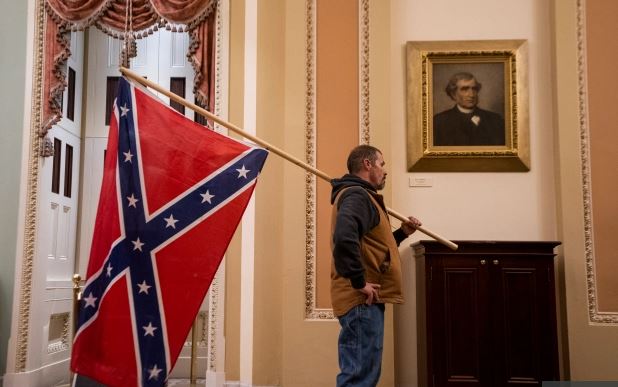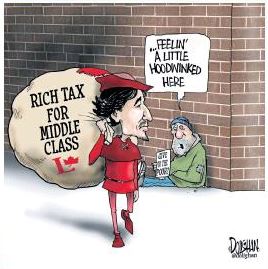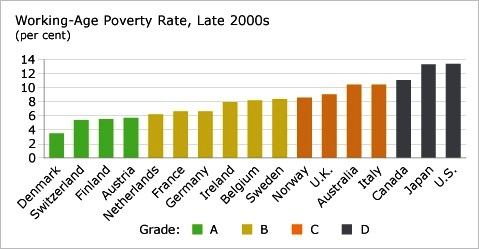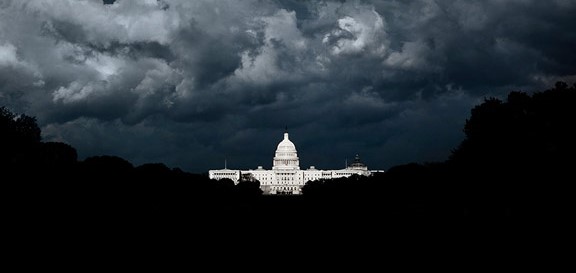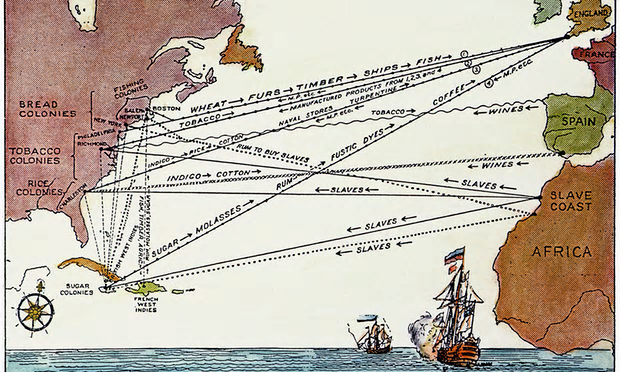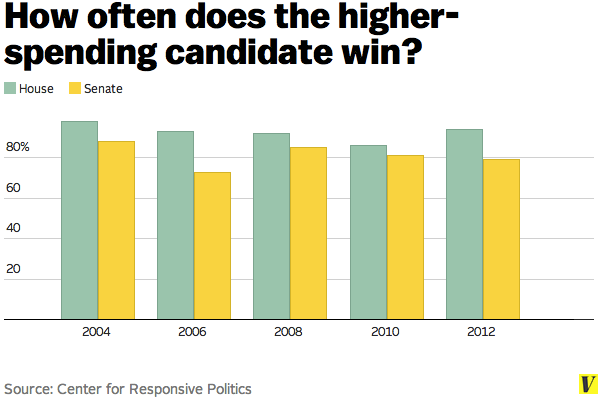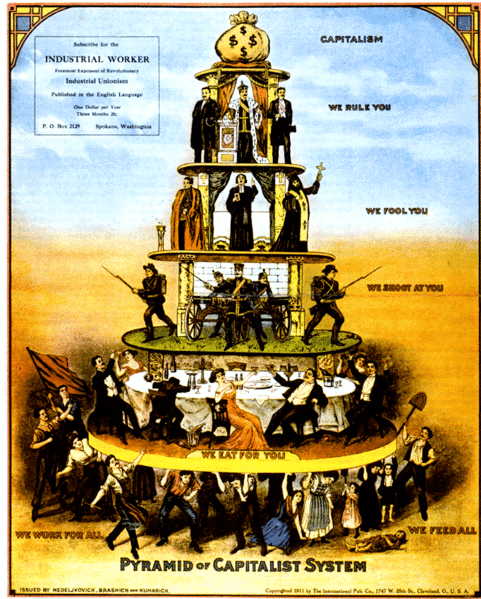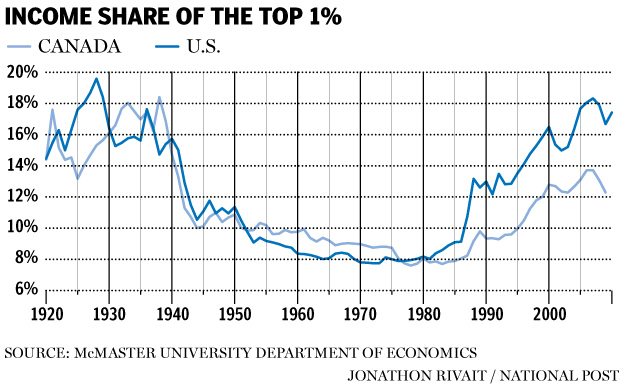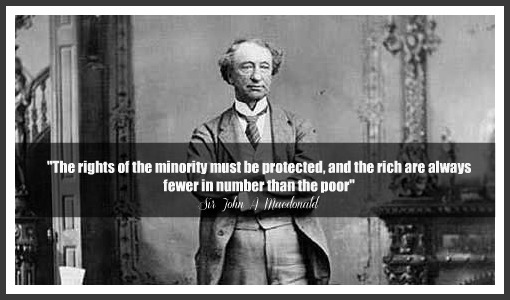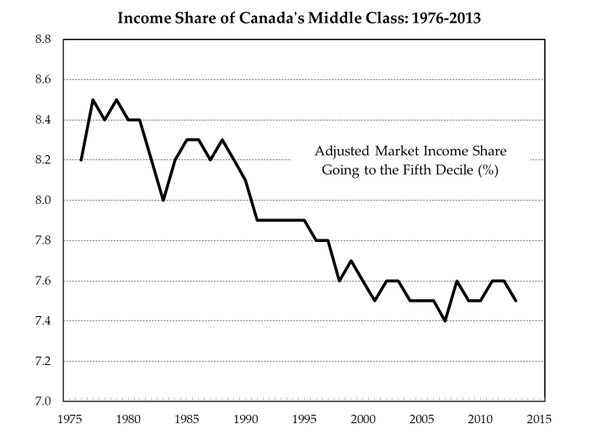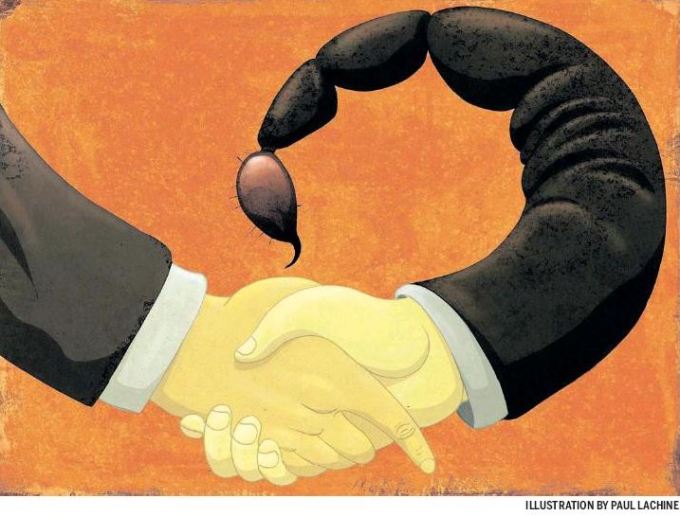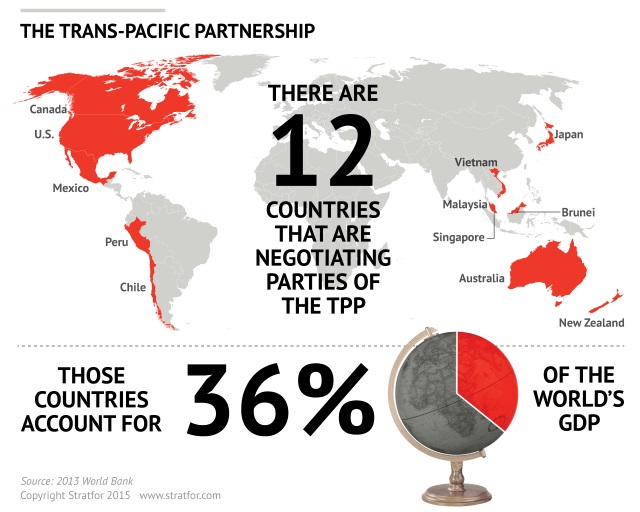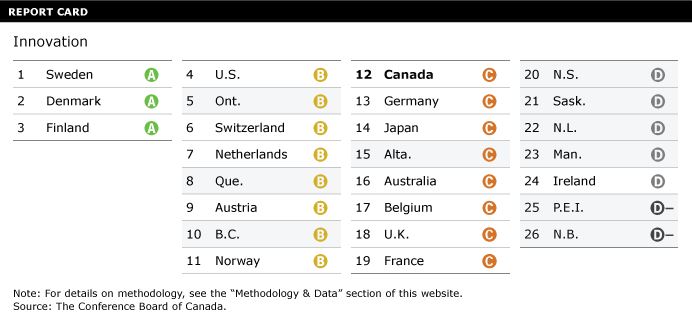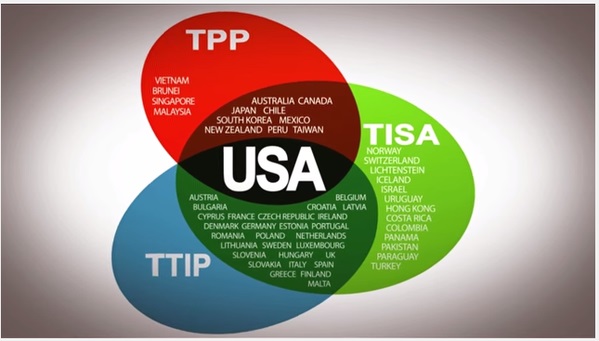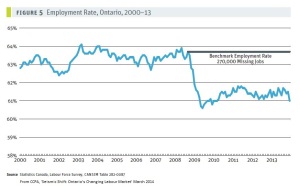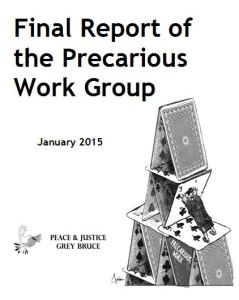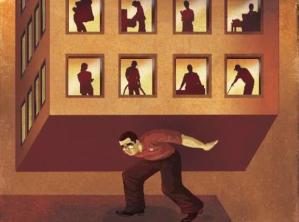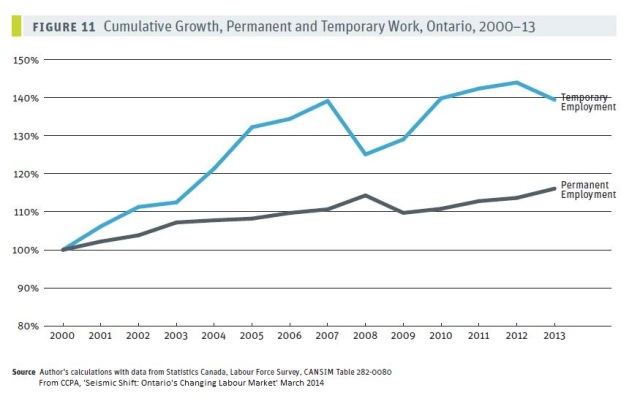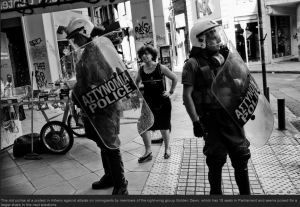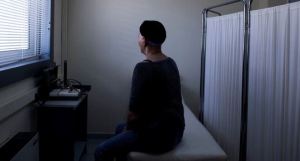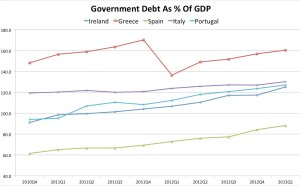David McLaren
Everyone is, quite rightly, focused on putting the pandemic behind us. That’s the first priority but, we should not ignore what our governments are doing in other areas of public concern. Under the cover of COVID, the conservative government of Ontario is pushing a regressive agenda that is harming workers, the poor and the environment. Premier Doug Ford’s agenda seems to be to weave a conservative ideology into the fabric of Ontario that will take more than a Liberal government to unravel.
The following short essays were published in local and regional newspapers in Ontario over the course of the past year. They provide a picture of the extent of the Ford government’s reworking of the province’s society.
From Bully to Statesman and Back … August 2020
Premier Doug Ford has gone from big blue bully to statesman-like status thanks to his deft handling of the COVID crisis in its early days. (Of course it helps if you actually listen to what public health professionals are telling you – unlike the Great Orange Orc south of us).
In front of the cameras, Mr Ford guides us through the stages of reopening and hails frontline health care workers as heroes. But behind the cameras, and under the cover of COVID, the Tories are privatizing health and treating its workers as zeros.
Here’s what they’re doing …
Bill 175 (now law as the Connecting People to Home and Community Care Act, 2020) opens the door to even more privatization of home care because it puts decisions on care into the hands of the new Ontario Health Teams, which themselves include for-profit health care providers. This could well impact the care Personal Service Workers are able to provide within long term care facilities.
We now know the real cost of privatizing long-term care. The Canadian military’s report on the disasters in nursing homes was the tip of a much larger iceberg. Most of the homes with the highest COVID case and death rates are privately owned. In Ontario, private, for-profit facilities have 54% of the beds but 73% of fatalities. Public homes have 20% of beds but only 6% of deaths.
A June 2020 report by the Royal Society of Canada reveals that Canada has by far the highest death rate in nursing homes – 81% to 66% in Spain and 31% in the US. It’s no secret that privately run homes are known for under staffing, skimping on supplies (like personal protection for workers), and poor protocols for containing outbreaks of disease.
Among privately run homes, those operated by chains are the worst (and also the most profitable). For example, Extendicare, which owns 69 long term care and retirement homes in Canada and contracts its management services to 53 others, made over $1 billion in 2019.
But it spent only $300,000 of its own money combatting COVID-19 outbreaks in its homes. Another $400,000 came from Ontario for pandemic aid. Yet, even in the midst of the pandemic, the corporation was able to send some $10 million in dividends to its shareholders.
By December 2020 Extendicare and Sienna Senior Living had both received $157 million in COVID-19 aid from government with more to come from Ontario. They also paid $74 million to shareholders.
By the end of May 2020, 80 people had died in Extendicare facilities due to COVID-19. By December, the death toll was 153. As of December, 329 residents and staff have died at Sienna homes.
By the way, it was the Tories under Mike Harris, that expanded the reach of private corporations into long-term care in Ontario, and axed many of the regulations that maintained standards of care in those homes. Mr Harris is now Chair of the Board of Chartwell, a privately run chain of retirement and nursing homes.
Mr Ford promised an investigation of the long-term care industry and its role during the pandemic, but its terms of reference are a long way from the kind of public inquiry this scandal cries out for. Instead, it will be a back-room kind of investigation with hearings in private, documentation withheld from the public, and no recommendations for improvement.
Normally, citizens would have recourse to the courts to sue for damages caused by mismanagement of the pandemic and bring failings into the light of day. However Mr Ford’s Bill 161 may frustrate that.
Bill 161 (the Smarter and Stronger Justice Act, 2020) passed into law on July 8, 2020, the same day that Bill 175 became law. Bill 161 makes justice neither smarter nor stronger. For example, it reduces the ability of Ontario’s legal aid system to provide advice and services which, combined with dramatic cuts in funding, disadvantages those who need these services most.
Bill 161 also imports certain tests from the American system that, with other measures, will make it much harder for citizens to launch class action suits, especially against the Province and corporations like private long-term care companies. All this is bad enough, but the real insult comes with the miserly one per cent raise the Premier is giving to the “heroic” nurses who are standing between us and the pandemic.
REFERENCES
Bill 175 – Connecting People to Home and Community Care Act, 2020
Analyses of LTC facilities
Extendicare & Sienna
Mike Harris
Terms for Ontario’s LTC Commission
Bill 161 – Smarter and Stronger Justice Act, 2020
Nurses
Bill 124 – Protecting a Sustainable Public Sector for Future Generations Act, 2019. Capped public sector wage increases at 1% a year for 3 years.
________________________________
Renters Beware … September 2020
The last time I wrote one of things, it was about how we really need a public inquiry into why so many COVID deaths have occurred in private long term care homes and how Premier Ford has short-circuited independent investigation. Four times more people have died in privately-run homes than those run by municipalities.
Now Mike Harris’ Chartwell Homes (he’s Chair of the Board) is planning to waive the 14-day isolation requirement for new residents to its retirement facilities. But some of its buildings also house long term care nursing beds. Apparently, Chartwell is losing money due to COVID and this is to attract more customers.
Between millennials partying like there’s no tomorrow and private nursing home execs hawking their services, this pandemic is going to be with us for a while.
But there are other things going on under the cover of COVID.
The Tories passed a law affecting renters in July 2020. In true bureaucratic doublespeak, the Protecting Tenants and Strengthening Community Housing Act does neither. Here’s what it does do …
- Landlords can give tenants a take-it-or-leave-it repayment plan to catch up on arrears. If you can’t repay it, you could be evicted without a hearing. You have only ten days to file a motion to set aside an eviction order and request a hearing at the Landlord and Tenant Board.
- Landlords now have 12 months to bring former tenants to the Landlord and Tenant Board for damages or arrears. The Board assumes the landlord will notify the tenant – which may or may not happen. But if you don’t attend, the Board will issue an Order against you.
- Tenants can still talk about issues that concern them at the Board, such as the lack of needed repairs. But you are now required to provide written notice to your landlord if you plan to do so.
- If a tenant learns that a rent increase is illegal, they can appeal the increase to the Landlord and Tenant Board for a period of up to 12 months. After that, you’re stuck with the new rent.
The new law comes into effect just as Ontario’s ban on evictions ends. There is a huge backlog of notices at the Landlord and Tenant Board that the Board is now beginning to send out.
The changes require tenants to be legally savvy or to get legal representation. So if you’re in, or about to get into a dispute with your landlord, you might want to seek advice from your friendly neighbourhood law office like the Grey Bruce Community Legal Clinic in Owen Sound.
Legal aid clinics are starting to get more requests for advice on housing issues, including evictions. But the Ford government has diminished community legal services with its Smarter and Stronger Justice Act (another triumph of doublespeak). Clinic budgets were cut and their services constrained.
The homeless tents are already going up in Toronto parks. Expect to see more of them before winter sets in.
REFERENCES
Four times more people have died in privately-run homes than those run by municipalities: https://www.thestar.com/business/2020/05/08/for-profit-nursing-homes-have-four-times-as-many-covid-19-deaths-as-city-run-homes-star-analysis-finds.html
Chartwell wants to waive 14-day quarantine for new residents https://www.thestar.com/business/2020/09/15/canadas-largest-private-retirement-home-operator-wants-to-stop-quarantining-new-residents-but-experts-say-that-could-put-seniors-at-risk.html
Mike Harris’ involvement with private long term care:
https://rabble.ca/blogs/bloggers/council-canadians-blog/2020/06/former-ontario-premier-mike-harris-raking-profits-long
Protecting Tenants and Strengthening Community Housing Act:
https://www.ola.org/en/legislative-business/bills/parliament-42/session-1/bill-184
Advocacy Centre for Tenants Ontario brief on Protecting Tenants and Strengthening Community Housing Act:
https://www.acto.ca/5-bill-184-changes-to-the-law/
Smarter and Stronger Justice Act: https://www.ola.org/sites/default/files/node-files/bill/document/pdf/2019/2019-12/b161_e.pdf
Ontario government reduces (by one-fifth) the massive cut to legal aid it had planned: https://www.huffingtonpost.ca/entry/ontario-walks-back-legal-aid-cuts_ca_5deec18ae4b00563b8563535
Osgoode brief on Smarter and Stronger Justice Act:
https://www.osgoode.yorku.ca/wp-content/uploads/2020/03/Bill-161-Brief-March-6-1.pdf
Canadian Environmental Law Association brief opposing Smarter and Stronger Justice Act:
https://cela.ca/wp-content/uploads/2020/06/CELA-brief-Bill-161-June-5-2020.pdf
Law Commission of Ontario to Attorney General Doug Downey opposing Ontario’s changes to justice: https://www.lco-cdo.org/wp-content/uploads/2020/01/LCO-Letter-re-Bill-161-Class-Actions-Final-Jan-22-2020.pdf\
________________________________
Cuts to Environmental Assessment …. October 2020
In previous articles that I call ‘Under the Cover of COVID,’ I outlined how Mr Ford’s legislative agenda will let private, for-profit nursing homes off the hook for their failure to contain COVID. The Conservatives are restricting the release of information in any investigation into pandemic deaths in private long-term homes. And, by changing the rules for class action suits, the Orwellian named Smarter and Stronger Justice Act restricts people’s access to legal redress for the loss of loved ones in those homes. I’ve also looked at how Mr Ford is making it harder for folks to keep from losing their homes by making the eviction process easier for landlords and by cutting back on the funding and scope of legal aid clinics.
This piece deals with the Conservatives’ deregulation of environmental safeguards.
A little over a year ago Mr Ford pushed through the Ontario legislature $300 million in cuts to the Ministry of the Environment, including projects funded by Ontario’s now axed cap and trade program. Killing this carbon pricing system cost us billions of dollars in revenue and cancelling green projects cost us millions more in breach of contract defaults.
Killing cap and trade without consultation with the public meant that Mr Ford also violated the law – specifically the Environmental Bill of Rights which requires governments to publicly post changes to environmental protection regulations and legislation.
Then, with his More Homes More Choice Act (an omnibus bill passed in 2019), Mr Ford gutted protection for endangered species. Among its highlights is a weakening of science-based decision making, zero consultation with First Nations, and the fabulous notion that species are not endangered in Ontario if they are thriving in Wisconsin – never mind the ecological importance they might serve here.
The same legislation weakened requirements for Environmental Assessments in order to cut (the government says) “red tape” that encumbers development. Where have we heard that before? From Mike Harris, whose own red tape cutting helped brew up the Walkerton water tragedy of May 2000.
Then, in July 2020, Mr Ford weakened requirements for environmental assessments again, in another piece of omnibus legislation – the so-called COVID economic recovery plan (Bill 197). Under the cover of COVID, this law removes many projects from environmental scrutiny and takes decisions for approval out of the hands of local people and puts them more securely in the hands of the Provincial Government.
Mr Ford has also failed to persuade First Nations that his changes to environmental law will preserve the Honour of the Crown. In other words, Ontario chiefs say the new rules will run roughshod over constitutionally protected aboriginal and treaty rights. They are no substitute for the kind of consultation required of governments to ensure proposed projects (such as mining in the Ring of Fire zone) do not harm the practice of those rights.
Over 130 First Nations and (separately) a number of environmental groups are suing Ontario for, once again, breaking the law that obliges the government to consult with the public before passing legislation that impacts the environment.
And it looks as though the Conservative government’s sharp dealing with First Nations will land it in court for judicial review on another matter. Three First Nations north of Lake Superior are suing the Province over its plans to allow the harvest of a patch of boreal forest four times the size of PEI. The impact on the First Nations’ aboriginal and Treaty 9 rights could be severe and yet they say the Province’s consultations with them were a sham. Mr Ford might be dealing with COVID in a competent manner, but that other crisis – the climate crisis – is being allowed to plough unchecked through Ontario’s environmental safe-guards.
REFERENCES
Law Commission of Ontario to Attorney General Doug Downey opposing Ontario’s changes to justice: https://www.lco-cdo.org/wp-content/uploads/2020/01/LCO-Letter-re-Bill-161-Class-Actions-Final-Jan-22-2020.pdf
Advocacy Centre for Tenants Ontario brief on Protecting Tenants and Strengthening Community Housing Act: https://www.acto.ca/5-bill-184-changes-to-the-law/
Ford government axes oversight of the environment – the Office of the Environmental Commissioner. https://www.nationalobserver.com/2019/01/04/news/ontario-environment-watchdogs-say-doug-ford-just-gutted-law-protects-your-rights
Ford government kills cap & trade:
http://theconversation.com/the-doug-ford-doctrine-short-term-gain-for-long-term-pain-116131
Cutting protection for species at risk:
https://theconversation.com/doug-ford-is-clear-cutting-ontarios-environmental-laws-119624
Premier Ford breaks the law:
https://www.huffingtonpost.ca/entry/ontario-broke-law-cap-trade-court-rules_ca_5da0b4c9e4b02c9da049cc8d
Ford cuts environmental assessments again (July 2020): https://www.nationalobserver.com/2020/07/08/news/environmental-assessments-speed-under-doug-fords-omnibus-covid-19-recovery-bill
Ford government’s COVID-19 economic recovery bill broke the law, auditor general says https://www.nationalobserver.com/2020/07/21/news/ford-governments-proposed-environmental-assessment-changes-are-potentially-illegal
Environmental groups take Ford government to court over COVID-19 recovery Bill 197: https://www.nationalobserver.com/2020/08/10/news/environmental-groups-take-ford-government-court-over-covid-19-recovery-bill
Growing number of First Nations raise concerns about Doug Ford’s omnibus Bill 197: https://www.nationalobserver.com/2020/08/19/news/growing-number-first-nations-raise-concerns-about-doug-fords-omnibus-bill
COO – a Coalition of 133 First Nations planning legal challenge of Ford’s Bill 197: https://www.nationalobserver.com/2020/08/28/news/coalition-133-first-nations-planning-legal-challenge-fords-bill-197
Three FNs sue Ford government over lack of consultation on forestry plans: https://www.nationalobserver.com/2020/09/22/news/three-first-nations-file-suit-against-ford-government-over-lack-consultation
________________________________
Killing off teachers’ seniority …. October 2020
My Mom was the first Special Ed teacher hired by the Peel Board of Education. Just about every summer she spent in Toronto taking classes to upgrade her qualifications. By the time she retired, the trail she blazed in education was well-recognized and appreciated.
She would not appreciate (as MPP Bill Walker implied in a recent tweet) that the Ontario Government of today would not consider her the best person to teach her classes.
The Ford Government is axing Regulation 274 of the Education Act. That Reg was part of a negotiated collective agreement between teachers and the government. It recognized the value of experience and training by obliging principals to hire from a roster of Occasional Teachers who have taught in their schools. And when a permanent teaching position opened up, that was the list the school board turned to.
The rationale for axing the Reg is that, partly because of COVID, school boards need to act swiftly to hire the best qualified teachers to fill vacant temporary or permanent spots on their staffs. This implies (as Bill Walker’s tweet does) that teachers with seniority – and experience and extra training – are not the best qualified.
But a look at the regulation itself reveals a process that is fair, efficient and a good way to keep on hand a list of qualified teachers with experience in local schools.
Before Reg 274 was negotiated and put in place, principals could hire anyone they wanted – and they did. Favourite nephews, best friends, supply teachers from another board, sometimes people without teaching certificates all found their way into the classroom. Not exactly the best way to ensure quality education.
What incentives would newly minted teachers have to stay in the area if they didn’t have some assurance they would be tapped to fill in on contract or as a supply teacher? The roster system of Reg 274 ensured they would be called upon for temporary work and for interviews if a permanent position opened up.
So let’s be honest. Revoking seniority for occasional teachers and the roster system is not designed to be a response to COVID. It will not make hiring new teachers more efficient and it will not produce better quality education for our kids. No, axing Reg 274 is, at best, a cost-cutting measure since school boards can pay less for less experienced teachers. It is also another conservative shot at unions since it cancels something that was the product of negotiations toward a collective agreement.
REFERENCES
Regulation 274 of the Ontario Education Act (download here):
https://www.ontario.ca/laws/regulation/120274/v6
Ontario’s Statement on its revocation of Reg 274:
https://news.ontario.ca/en/statement/58822/ontario-ensures-teaching-jobs-go-to-the-best-educators#topics
CCPA comment on Reg 274 with notes on the situation before it was enacted:
https://behindthenumbers.ca/2019/02/15/seniority-and-occasional-teacher-qualifications-understanding-regulation-274/
Tweet from Bruce Grey Owen Sound MPP (@billwalkermpp) Oct 15/20:
“We are ensuring that your child has the best educator at the front of class. We stand with parents who want merit, qualification, and diversity to come ahead of seniority.”
________________________________
Ontario is letting COVID off the leash …. November 2020
It looks like Doug Ford isn’t coping with COVID as well as we thought he was when the first wave of the virus tore through the Province. Now his concern for Ontario’s economy seems to be trumping (pun intended) his concern for people. Witness, for example, the weak thresholds for his new colour-coded closures – thresholds that were never endorsed by public health. And while other provinces used the lull over the summer to ramp up health care staffing, Ontario did not.
Compared to the rest of the world, Canada (and therefore Ontario since we seem to be the nation’s super spreader) is not doing as well as China, or Vietnam, or Australia or New Zealand or any number of African countries. Comparing ourselves to the terror to the south of us is not an accurate measure of our COVID containment.
Cases are spiking again in long-term care homes – especially those run by private corporations. In the spring, Canada had by far the highest death rate in nursing homes – 81% to 66% in Spain and 31% in the US. For-profit homes own about 60% of LTC beds in Ontario but accounted for over 70% of COVID-related deaths.
Mr Ford could have opened the can of worms that is Ontario’s LTC system to public scrutiny with an official inquiry. Instead he opted for a limited look with an investigation that asked polite questions behind closed doors.
He could have allowed folks who have lost loved ones in the pandemic to sue LTC homes in open court. That would prompt some serious changes.
Instead he has, under the cover of COVID legislation, restricted the grounds on which people can take these homes to court. Under the Supporting Ontario’s Recovery and Municipal Elections Act plaintiffs will now have to prove gross negligence – that a home did not act or even try to act in accord with public health guidelines.
That’s an almost impossible bar to reach in court. It requires proof not only of malfeasance but of maliciousness. But there’s more. The Act also wipes out all the COVID-related suits that have already been filed.
The rationale advanced by the government is that this was done to protect workers in the homes from litigation. This is nonsense. No one sues the workers in cases like this. For one thing, they have no money, their wages being so low. For another, it’s the owners of LTC homes that own responsibility – it’s their low staffing levels, their poor infection control practices, their skimping on supplies.
No, the new law is clearly meant to protect nursing home owners, shareholders and boards of directors … like Mike Harris, who is the Chairman of the Board of Chartwell. Chartwell is a real estate firm that owns some 200 retirement and LTC homes across Canada (23 in Ontario) and had revenues last year of just under $800 million. 85 people died in its homes from COVID in the spring.
When he was Premier, Mr Harris axed many of the regulations that were designed to keep residents safe. Mr Ford went further. In the fall of 2018 he eliminated most Resident Quality Inspections (RQIs) – down to 14 in 2019 from an average of 650 over the previous three years.
RQIs were the most effective check on resident health and quality of care. They were done in addition to other inspections and were a comprehensive assessment of (for example) infection control and patient care.
Even scarier, a CBC investigation found that LTC homes averaged 7000 regulatory violations a year and 85% of homes were repeat offenders.
Private sector ideology is trumping (again, pun intended) public safety and people are paying the price.
REFERENCES
Ontario rejected its own public health agency’s advice when it launched its colour-coded plan for COVID-19 restrictions:
https://www.thestar.com/news/gta/2020/11/11/ontario-rejected-its-own-public-health-agencys-advice-when-it-launched-its-colour-coded-plan-for-covid-19-restrictions.html
For-profit long-term-care homes once again seeing significantly worse outcomes in Ontario’s second wave, Star analysis finds:
https://www.thestar.com/news/gta/2020/11/13/residents-of-ontarios-for-profit-long-term-care-homes-experiencing-significantly-worse-covid-19-outcomes-in-cases-and-deaths.html
How COVID-19 has exposed the perils of for-profit seniors’ housing:
https://www.tvo.org/article/how-covid-19-has-exposed-the-perils-of-for-profit-seniors-housing
Chartwell’s overview of its LTC operations (May 2020):
https://www.newswire.ca/news-releases/chartwell-provides-an-overview-of-its-ltc-operations-830146209.html
The latest COVID-19 data from Canada and around the world.Ontario is the worst jurisdiction in CA (in deaths/100k pop):
https://www.thestar.com/news/canada/the-latest-covid-19-data-from-canada-and-around-the-world-check-here-for-updates-on-cases-and-deaths.html
Doug Ford’s government is making it almost impossible to sue long-term-care homes 22 October 2020:
https://www.thestar.com/opinion/star-columnists/2020/10/22/doug-fords-government-is-making-it-almost-impossible-to-sue-long-term-care-homes-good-thing-hes-protecting-covid-victims-families.html
Comprehensive nursing home inspections caught up to 5 times more violations. Why did Ontario cut them?
https://www.cbc.ca/news/canada/long-term-care-inspections-violations-1.5737081
85% of Ont. nursing homes break the law repeatedly with almost no consequences, data analysis shows:
https://www.cbc.ca/news/marketplace/nursing-homes-abuse-ontario-seniors-laws-1.5770889
________________________________
With a Little Help for his Friends …. December 2020
Under the cover of COVID, Christmas came early this year for the friends of Doug Ford.
The owners and directors of Long Term Home corporations (including Mike Harris) are off the hook for liability for their well-documented shoddy operations during COVID.
Ford’s friend and funder Charles McVety will, somewhat magically, likely get his Christian College turned into a university.
His developer buddies will like Mr Ford’s new rules for Conservation Authorities whose authority is now much diminished.
And what did Santa Doug do to make all this happen? He stuffed the stockings hung by the chimney with care. Every one of these treats was snuck into omnibus bills designed to deal with the pandemic.
The legislation limiting peoples’ ability to sue LTC homes was stuffed into the Supporting Ontario’s Recovery and Municipal Elections Act. You now have to prove the home was not merely negligent, but ‘grossly’ negligent.
There’s plenty of evidence of negligence. Just ask the army. Or personal support workers who have come forward with tales of poor infection control, lack of personal protection equipment, low staffing levels and abysmal pay. But ‘gross negligence’ is harder to prove.
Those factors have contributed to horrible statistics: For-profit homes have logged ten times the deaths per bed as non-profit homes. Residents in for-profit homes are three times more likely to catch COVID and staff twice as likely – a record worse than European countries and even the US.
Of course it may have helped that the LTC association lobbied the government hard in the months leading up to the passage of the Act. And no doubt lobbyists’ donations to Mr Ford’s party got the attention of MPPs. And that many of those donors used to work for the Tories.
The legislation for rebranding McVety’s Canadian Christian College as an accredited university was tucked into the stocking labelled Bill 213, an omnibus bill dealing with urgent pandemic matters. Schedule 2 of the Bill simply declares, much like a papal bull, that the college can now grant Bachelor-level degrees.
It doesn’t upgrade the academic qualifications of Mr McVety and his staff – which are questionable. It doesn’t elevate the low standards for graduates. And it doesn’t whitewash Mr McVety’s homophobic and racist speech. But it does give Mr McVety, a long-time supporter and funder of the Ontario PCs, what he wanted for Christmas.
Finally (for now at least) is legislation which practically eviscerates the ability of the Province’s conservation authorities (CAs) to regulate development to protect the environment. Schedule 6 does the damage and it’s buried in omnibus Bill 229, an act to implement the Conservatives’ 2020 pandemic budget.
The government spin is that it simply increases transparency of what CAs are up to. It does that, but it also expands the authority of the Minister to override decisions made by a CA. It narrows the authority and scope of what CAs can do to protect the environment. And it restricts the ability of CAs to act on things like flood control and protecting clean water sources.
Bill 229 (the Protect, Support and Recover from COVID-19 Act – I love the titles of these things) also has a bonus stocking stuffer. This one is for the logging industry. As the Canadian Environmental Law Association notes, Schedule 8 exempts them from prohibitions against destroying the habitat of endangered species. That covers logging operations on nearly two-thirds of the Province.
Mr Grinch didn’t steal Christmas. He gave it to his friends.
REFERENCES
Doug Ford’s government is making it almost impossible to sue long-term-care homes:
https://www.thestar.com/opinion/star-columnists/2020/10/22/doug-fords-government-is-making-it-almost-impossible-to-sue-long-term-care-homes-good-thing-hes-protecting-covid-victims-families.html
85% of Ont. nursing homes break the law repeatedly with almost no consequences, data analysis shows:
https://www.cbc.ca/news/marketplace/nursing-homes-abuse-ontario-seniors-laws-1.5770889
Inside Kennedy Lodge (a Revera home), The Scarborough Home Where 31 People Have Died Of COVID-19:
https://www.huffingtonpost.ca/entry/covid-care-home-deaths-kennedy-lodge-scarborough_ca_5fb43bd2c5b66cd4ad3faeb8
For-profit long-term-care homes once again seeing significantly worse outcomes in Ontario’s second wave, Star analysis finds:
https://www.thestar.com/news/gta/2020/11/13/residents-of-ontarios-for-profit-long-term-care-homes-experiencing-significantly-worse-covid-19-outcomes-in-cases-and-deaths.html
Ontarians Suffered ‘Agonizing’ Weeks While Nursing Home Group Hired Lobbyists:
https://www.huffingtonpost.ca/entry/holland-christian-homes-coronavirus-lobbyists_ca_5fc7f1b6c5b66bc57467044c?utm_hp_ref=ca-politics&ncid=newsltcahpmgpols
Ontario PCs Have Raked In $30K From Big Nursing Home Lobbyists:
https://www.huffingtonpost.ca/entry/ontario-nursing-home-lobbyists-pc-party-donations_ca_5fc53f95c5b63d1b770e8a4d
A plea from a Grey Bruce Personal Service Worker:
https://owensoundhub.org/letters/10220-psw-a-day-in-the-life.html
A little help for Charles McVety’s Canadian Christian College: https://www.thestar.com/politics/political-opinion/2020/10/31/doug-ford-wants-to-give-university-status-to-a-school-run-by-a-homophobic-preacher-but-thats-only-half-the-story.html
McVety and his family borrow heavily from his Christian College charity: https://www.thestar.com/politics/political-opinion/2020/11/09/charles-mcvety-borrows-heavily-from-his-christian-college-charity-he-also-holds-a-political-iou-from-doug-ford.html
More on McVety from Ryan Brown (in BGOS): Walker’s Vote (for college) Propagates hate: https://owensoundhub.org/opinion/10584-walker-s-vote-propagates-hate.html … with an exchange of views: https://owensoundhub.org/opinion/10587-further-on-charles-mcvety.html
Bill 213: “Better for People, Smarter for Business Act, See Schedule 2.
Ford moving to permanently exempt logging industry from endangered species law in same Act:
https://www.nationalobserver.com/2020/11/13/news/doug-ford-permanently-exempt-logging-endangered-species-law
Brief of the Canadian Environmental Law Association on changes to Conservation Authorities in Bill 229, the Protect, Support and Recover from COVID-19 Act (Budget Measures), 2020:
https://cela.ca/bill-229-written-submission/. Links to CELA’s written submission here: https://cela.ca/wp-content/uploads/2020/11/CELA-Bill-229-Schedules-6-and-8-Submission-to-Standing-Committee-Nov-2020-1.pdf Updated to 4 December 2020 to include Government’s additions to the Bill: https://cela.ca/wp-content/uploads/2020/12/CELA-Analysis-SCFEA-Motion-Package-Bill-229-2.pdf
